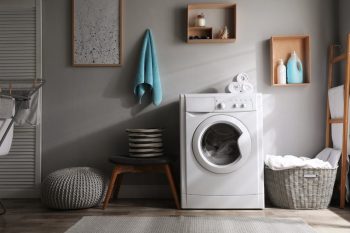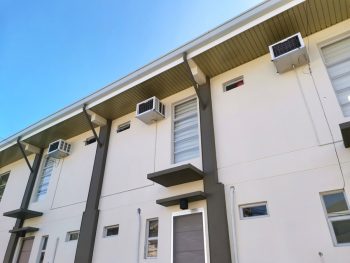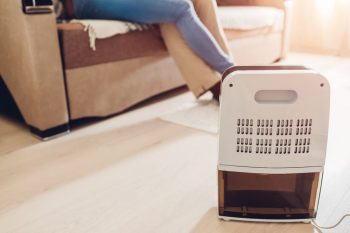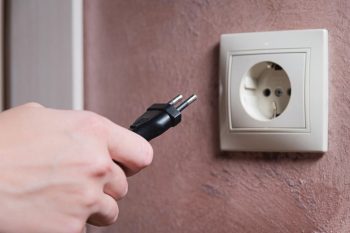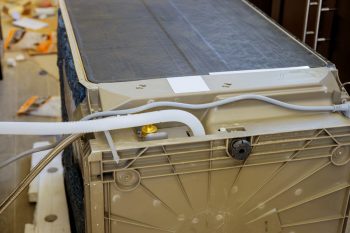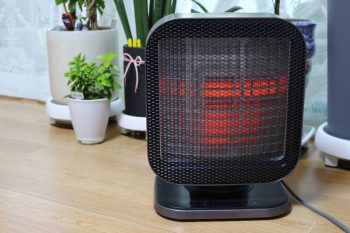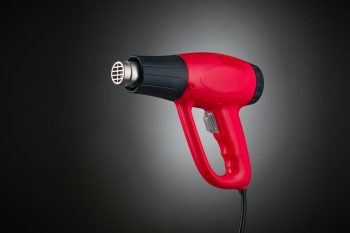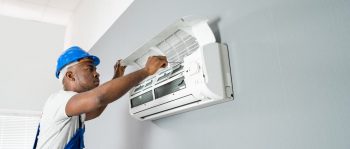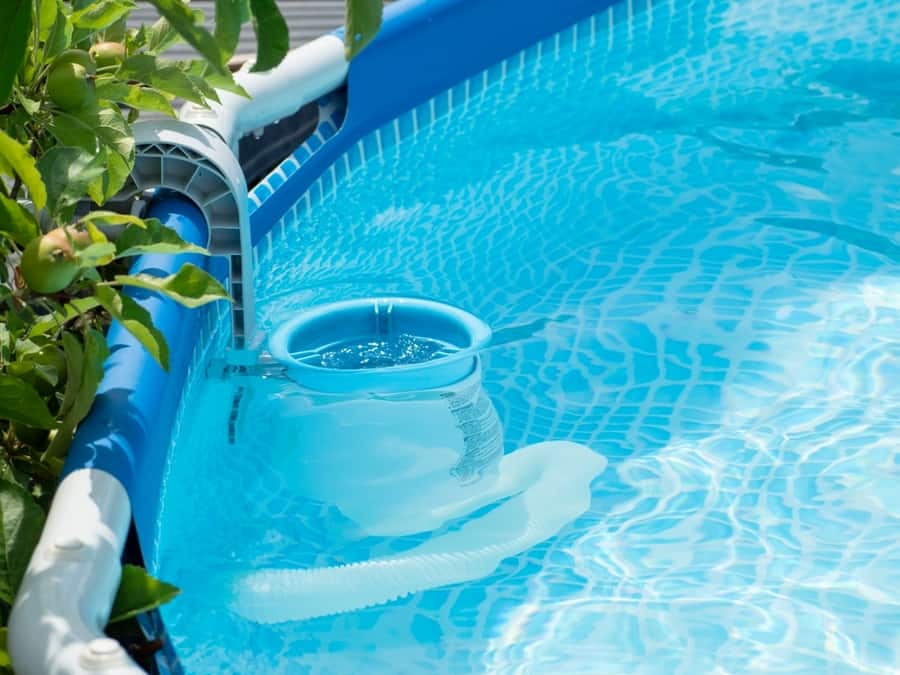
Notice how leaves, dirt, and debris that fall into your pool tend to float to the surface and drift to the edges of the water.
This makes the placement of pool skimmers ideal as they draw in all of that debris to keep your pool looking fresh and clean.
There are instances when leaves and dirt might accumulate in the water, which may point to problems with your skimmers. But just like their placement, these pool skimmers reveal only the surface of the problem.
Find out why your pool skimmers don’t seem to remove debris as they used to and what you can do to increase suction.
- Low water levels can prevent your skimmer from collecting debris.
- Pool skimmers can lose suction when blockages occur anywhere in the filtration line. The same happens when the skimmer baskets are full.
- A damaged impeller and air leaks can also significantly reduce water pressure.
- Routine cleaning is often the best way to keep your skimmers in proper working condition.
Pool skimmers look like little windows with flaps that open and close with each ebb of water. They make up just the beginning of your pool’s water filtration process.
So when they fail to suction dirt and debris from your pool, there could be many other problems in the system beyond your immediate view.
How To Increase Pool Skimmer Suction
1. Increased Water Level
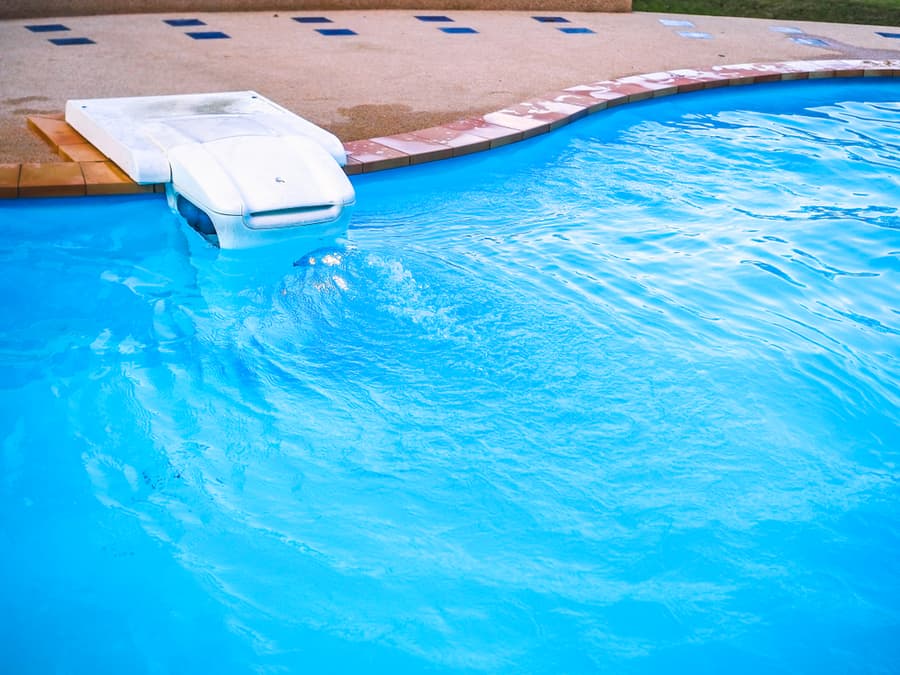
Because pool skimmers are often positioned just under the pool’s coping, you have to maintain an appropriate water level to keep your skimmers partially submerged.
If the water is not high enough, the skimmers could stay above the water level, preventing them from suctioning any debris.
2. Clean Blocked Cartridge or Pre-Pump Filter
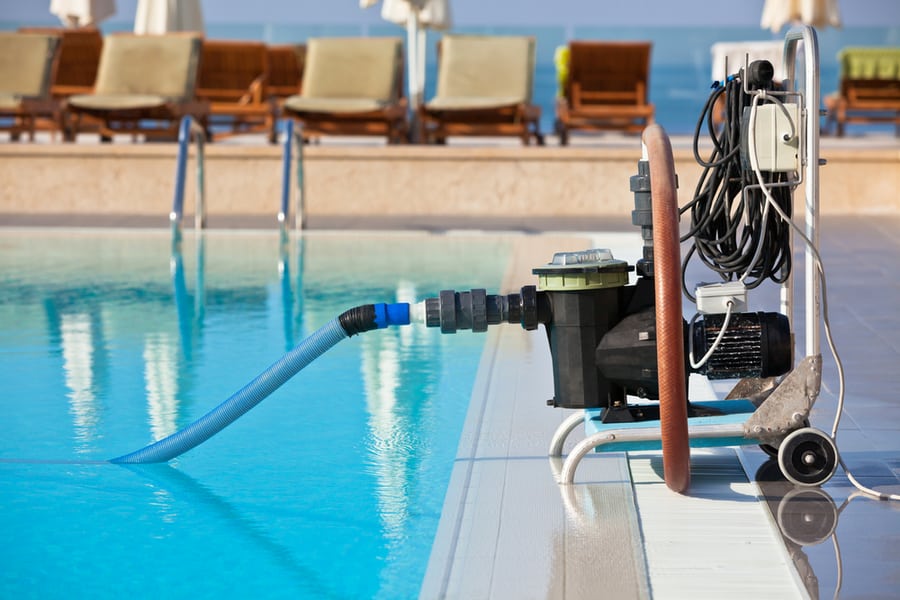
A cartridge and pre-pump filter work to remove dirt and debris from the water. Clear water that passes through is then fed back into the pool.
When either of the filters becomes too obstructed by the debris that your skimmers collect, they could impede the suction of the entire system. Cleaning or replacing the filters should encourage more efficient filtration.
3. Check for Impeller Malfunction
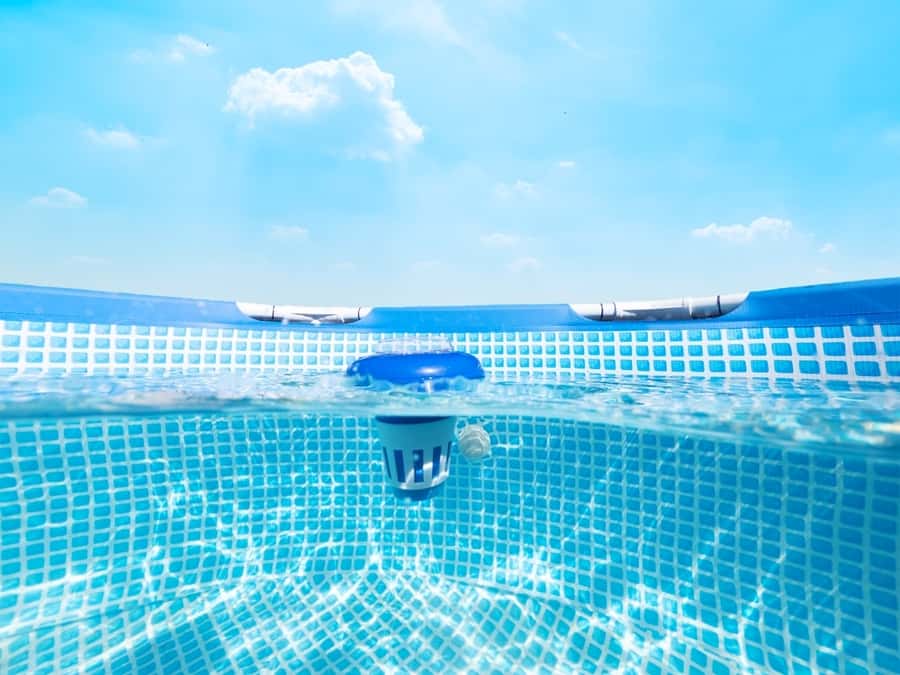
The impeller is your pool filtration system’s only moving part. This component rotates to create the suction power in the first place.
As it moves, water is sucked in through the filtration lines and pushed out through the return lines. Sometimes, debris can get into the impeller, causing reduced suction and low water pressure.
4. Clear Out Suction Line Obstructions
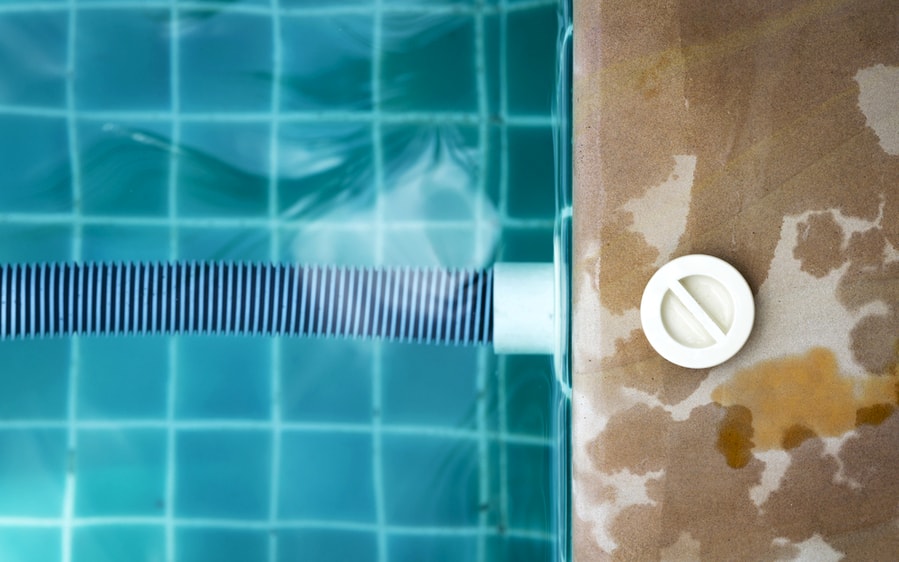
The suction line pertains to any segment of the filtration system that involves collecting dirty water and debris from the pool.
Anywhere along these lines, dirt could get stuck, causing a blockage, especially when they accumulate. Routine cleaning of the suction lines can help prevent major obstructions and maintain sufficient suction power.
5. Inspect for Air Leaks
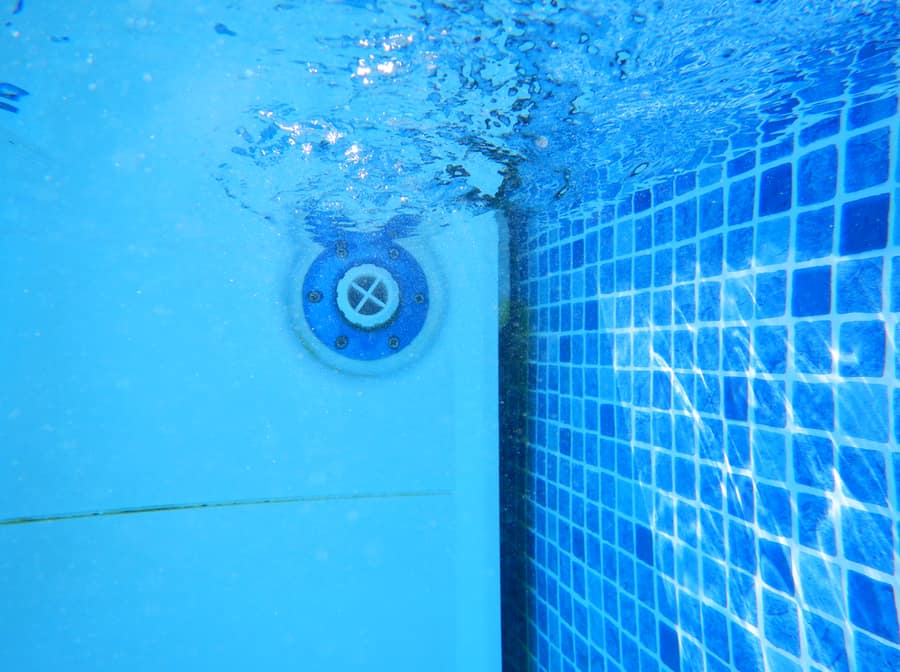
The filtration process requires a closed system to suck out dirt and debris from your pool. Loose valves or pipes, cracks, and breaks in the tubes of the suction line, or even low water levels can interrupt this system.
In effect, they cause the formation of air pockets, and the system could lose much of its water pressure and therefore struggle to suction contamination from your pool.
6. Empty the Skimmer Baskets
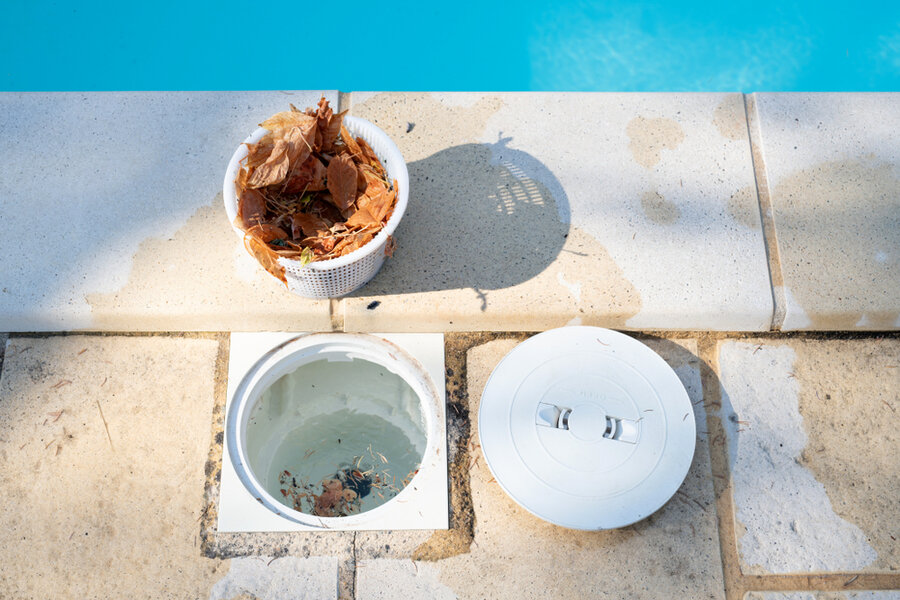
All that filtered debris needs to go somewhere, and that’s precisely what the skimmer baskets are for. So any leaves and dirt collected during the process get deposited in the filter baskets, waiting for manual cleaning.
If you don’t empty them, the skimmers could become clogged. In addition, without any space to deposit new debris, the skimmers lose pressure until the baskets are emptied.
Most of the time, weak suction power is caused by blocks in the filtration system. Routine cleaning and filter replacement can help prevent these obstructions from getting in the way of your pool filtration system’s job.
However, in case of any damage to the lines, pipes, or valves, make sure to call a professional. Over time, water damage and wear and tear can raise the need for repairs in your pool filtration system.
Avoid DIY fixes and seek the help of a professional whenever necessary.
Takeaway
Your pool skimmers only scratch the surface. Beyond those little windows is a much more complex filtration system that might be the culprit for poor suction power.
Ensure your pool is clean and properly maintained to avoid problems with your skimmers and filtration. In case of any damage, don’t hesitate to call your trusted pool maintenance service.
Frequently Asked Questions
How Long Should I Keep My Pool Skimmer On?
According to experts, your pool skimmer should be left on 24/7. This guarantees healthy pH levels in your pool and reduces the risk of contamination.
However, with such intensive performance, it’s equally important that you provide your filtration system with the necessary maintenance.
How Often Should I Clean My Pool Filter System?
During swim season, your pool filtration system might require cleaning at least once a month. However, you can dial it down to just once every two months for off-seasons.
However, if you have an oversized filter, you may have to get your system professionally cleaned 3 to 4 times every year.

